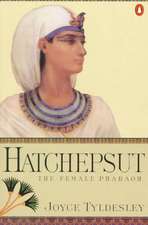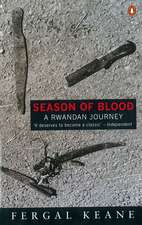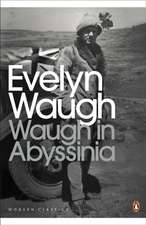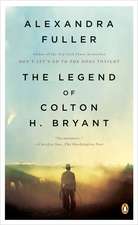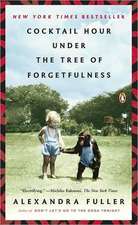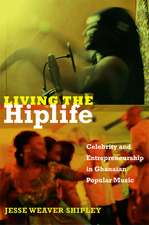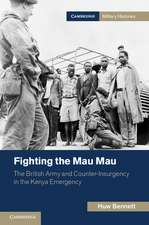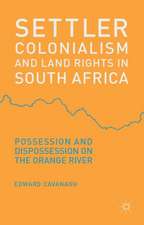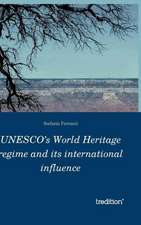Scribbling the Cat
Autor Alexandra Fulleren Limba Engleză Paperback – 16 ian 2014
| Toate formatele și edițiile | Preț | Express |
|---|---|---|
| Paperback (2) | 72.90 lei 6-8 săpt. | |
| Penguin Books – 25 apr 2005 | 130.71 lei 3-5 săpt. | |
| PICADOR – 16 ian 2014 | 72.90 lei 6-8 săpt. |
Preț: 72.90 lei
Preț vechi: 84.66 lei
-14% Nou
Puncte Express: 109
Preț estimativ în valută:
13.95€ • 14.51$ • 11.52£
13.95€ • 14.51$ • 11.52£
Carte tipărită la comandă
Livrare economică 14-28 aprilie
Preluare comenzi: 021 569.72.76
Specificații
ISBN-13: 9781447262534
ISBN-10: 1447262530
Pagini: 274
Dimensiuni: 156 x 234 x 17 mm
Greutate: 0.47 kg
Editura: PICADOR
ISBN-10: 1447262530
Pagini: 274
Dimensiuni: 156 x 234 x 17 mm
Greutate: 0.47 kg
Editura: PICADOR
Notă biografică
Alexandra Fuller
Recenzii
"Searing, at times intoxicating prose... striking, intimately revealing..." —The Washington Post
"Scribbling the Cat defies easy definition . . . [a] wild-hearted beauty of a book." —O, The Oprah Magazine
"[Scribbling the Cat] is no more a simple profile of an ex-soldier than Fuller's first book, the acclaimed bestseller Don't Let's Go to the Dogs Tonight, was merely a memoir of growing up.... The story catches fire." —Newsweek
"Scribbling the Cat defies easy definition . . . [a] wild-hearted beauty of a book." —O, The Oprah Magazine
"[Scribbling the Cat] is no more a simple profile of an ex-soldier than Fuller's first book, the acclaimed bestseller Don't Let's Go to the Dogs Tonight, was merely a memoir of growing up.... The story catches fire." —Newsweek
Extras
Uncharacteristic Sole Flood BECAUSE IT IS THE LAND that grew me, and because they are my people, I sometimes forget to be astonished by Africans.
But I was astonished, almost to death, when I met K.
For a start, K was not what I expected to see here.
Not here, where the elevation rises just a few feet above ennui and where even the Goba people-the people who are indigenous to this area-look displaced by their own homes, like refugees who are trying to flee their place of refuge. And where the Tonga people-the nation that was shifted here in the 1950s, when the colonial government flooded them out of their ancestral valley to create Lake Kariwa-look unrequitedly vengeful and correspondingly despondent. And where everyone else looks like a refugee worker; sweat-drained, drunk, malarial, hungover, tragic, recently assaulted.
Down here, even those who don't go looking for trouble are scarred from the accidents of Life that stagger the otherwise uninterrupted tedium of heat and low-grade fever: boils, guns, bandit attacks, crocodiles, insect bites. No ripped edge of skin seems to close properly in this climate. Babies die too young and with unseemly haste.
If you count my parents and K, there are maybe two dozen people-out of a total population of about sixty thousand-who have voluntarily moved to the Sole Valley from elsewhere. That's if you don't count the occasional, evaporating aid workers who slog out this far from hope and try to prevent the villagers from losing their lives with such apparent carelessness. And if you don't count the Italian nuns at the mission hospital who are here as the result of a calling from God (more like an urgent shriek, I have no doubt).
Sole Valley is a V-shaped slot of goat-dusted scrub between the Chabija and Pepani Rivers in eastern Zambia. The town of Sole has metastasized off the cluster of buildings that make up the border post between Zambia and Zimbabwe. It consists of customs and immigration buildings, a (new and very smart) police station, an enormous tarmac parking lot for trucks, and a series of shabby tin and reed shacks that billow tarpaulins or plastic sheeting in a feeble protest against rain or dust and that offer for sale black market sugar, cooking oil, salt, mealie meal, and bread.
welcome to sole, says the sign. speed kills, condoms save.
People at the border post climb out of their cars and you see them looking around and you can hear them thinking, Save me from what?
Guinea fowl destined for a torturous journey into someone's pot clatter from their bush-tambo baskets, "Nkanga, nkanga!" and the Heuglin's robins call from the dust-coated shrubs, "It's-up-to-you, it's-up-to-you, up-to-you, UP-TO-YOU."
Truck drivers in diesel-stained undershirts slouch in the shade of brothels and taverns, suffocating their boredom with women, beer, and cigarettes. A sign dangling above the shelves of one tavern, whose wares include not only beer and cigarettes but also condoms and headache pills, asks, have you come to solve my problems or to multiply them? Prostitutes lounge from trucker to trucker, casually soliciting in a hip-sliding sly way that hides their urgency. It's a deadly business. Cutthroat and throat-cut. Girls as young as twelve will sell themselves to the long-haul truckers for as little as a meal or a bar of soap.
In the shade of a shack that advertises max barbers arc welding and battery charge now open, a truck yawns and surveys its parts, which are vomited greasily on the ribbed earth in front of it, while a young man in a shiny nylon soccer shirt has his hair braided into porcupine spikes by a woman with deft fingers.
And next to a sign that says relax &discus restarunt we sale shima &tea, two women from the Watchtower Society sit out in the sun with their legs stretched out in front of them, stern in their reproachfully white robes. They drink Coke and eat cakes of fried mealie meal.
There are, in Africa, many more glamorous and inhabitable addresses than this low sink of land on the edge of perpetual malaria. Scratch the surface of anyone who has voluntarily come to this place-and who is unguardedly drunk at the time-and you will invariably uncork a wellspring of sorrow or a series of supremely unfortunate events and, very often, both.
Scratch-and-sniff.
Stiff upper lips crack at the edge of the bar, and tears spill and waves of unaccustomed emotion swallow whole brandy-and-Coke-smelling days. These tidal waves of sadness and hopeless nostalgia (not the hankering for a happy, irretrievable past, but the much worse sensation of regret for a past that is unbearably sad and irrevocably damaged) are more prevalent when the heat gets too much or when Christmas creeps around and soaks the senses with the memory of all that was once promising and hopeful about life. And then tight tongues grow soft with drink and the unavoidable sadness of the human condition is debated in ever decreasing circles until it sits on the shoulders of each individual in an agonizingly concentrated lump. Eventually someone drinks himself sober and declares that life is short and vicious and unveeringly cruel, and perhaps it's best not to talk about it.
The hangovers from these drunken confessions of titanic misery (aborted marriages, damaging madness, dead children, lost wars, unmade fortunes) last nine or ten months, during which time no one really talks about anything, until the pressure of all the unhappiness builds up again to breaking point and there is another storm of heartbreaking confessions.
But K, perfectly sober and in the bright light of morning, volunteered his demons to me, almost immediately. He hoisted them up for my inspection, like gargoyles grinning and leering from the edge of a row of pillars. And I was too curious-too amazed-to look the other way.
It bloody nearly killed me.
THE YEAR THAT I went home from Wyoming to Zambia for Christmas-the year I met K-it had been widely reported by the international press that there was a drought in the whole region. A drought that had started by eating the crops in Malawi and Zimbabwe and had gone on to inhale anything edible in Zambia and Mozambique. It was a drought that didn't stop gorging until it fell into the sea, bloated with the dust of a good chunk of the lower half of Africa's belly.
News teams from all around the world came to take pictures of starving Africans and in the whole of central and southern Africa they couldn't find people more conveniently desperate-by which I mean desperate and close to both an international airport and a five-star hotel-than the villagers who live here. So they came with their cameras and their flak jackets and their little plastic bottles of hand sanitizer and took pictures of these villagers who were (as far as the villagers themselves were concerned) having an unusually fat year on account of unexpected and inexplicably generous local rain and the sudden, miraculous arrival of bags and bags of free food, which (in truth) they could use every year, not only when the rest of Africa suffered.
The television producers had to ask the locals-unused to international attention-to stop dancing and ululating in front of the camera. Couldn't they try to look subdued?
"Step away from the puddles."
Rain slashed down and filming had to stop. The sun came out and the world steamed a virile, exuberant green. The Sole Valley looked disobediently-at least from the glossy distance of videotape-like the Okavango Swamps. Women and children gleamed. Goats threatened to burst their skins. Even the donkeys managed to look fortunate and plump. In a place where it is dry for nine months at a stretch, even the slightest breath of rain can be landscape-altering and can briefly transform the people into an impression of tolerable health.
"Explain to them that this is for their own good. God knows, I am not doing this for my entertainment."
If the television crews had wanted misery, they had only to walk a few meters off the road and into the nearest huts, where men, women, and children hang like damp chickens over long drops losing their lives through their frothing bowels. But HIV/ AIDS is its own separate documentary.
Life expectancy in this dry basin of land has just been officially reduced to thirty-three. How do you film an absence? How do you express in pictures the disappearance of almost everyone over the age of forty?
"Please ask those young boys to look hungry."
The young boys obligingly thrust their hips at the camera and waggled pink tongues at the director.
But I was astonished, almost to death, when I met K.
For a start, K was not what I expected to see here.
Not here, where the elevation rises just a few feet above ennui and where even the Goba people-the people who are indigenous to this area-look displaced by their own homes, like refugees who are trying to flee their place of refuge. And where the Tonga people-the nation that was shifted here in the 1950s, when the colonial government flooded them out of their ancestral valley to create Lake Kariwa-look unrequitedly vengeful and correspondingly despondent. And where everyone else looks like a refugee worker; sweat-drained, drunk, malarial, hungover, tragic, recently assaulted.
Down here, even those who don't go looking for trouble are scarred from the accidents of Life that stagger the otherwise uninterrupted tedium of heat and low-grade fever: boils, guns, bandit attacks, crocodiles, insect bites. No ripped edge of skin seems to close properly in this climate. Babies die too young and with unseemly haste.
If you count my parents and K, there are maybe two dozen people-out of a total population of about sixty thousand-who have voluntarily moved to the Sole Valley from elsewhere. That's if you don't count the occasional, evaporating aid workers who slog out this far from hope and try to prevent the villagers from losing their lives with such apparent carelessness. And if you don't count the Italian nuns at the mission hospital who are here as the result of a calling from God (more like an urgent shriek, I have no doubt).
Sole Valley is a V-shaped slot of goat-dusted scrub between the Chabija and Pepani Rivers in eastern Zambia. The town of Sole has metastasized off the cluster of buildings that make up the border post between Zambia and Zimbabwe. It consists of customs and immigration buildings, a (new and very smart) police station, an enormous tarmac parking lot for trucks, and a series of shabby tin and reed shacks that billow tarpaulins or plastic sheeting in a feeble protest against rain or dust and that offer for sale black market sugar, cooking oil, salt, mealie meal, and bread.
welcome to sole, says the sign. speed kills, condoms save.
People at the border post climb out of their cars and you see them looking around and you can hear them thinking, Save me from what?
Guinea fowl destined for a torturous journey into someone's pot clatter from their bush-tambo baskets, "Nkanga, nkanga!" and the Heuglin's robins call from the dust-coated shrubs, "It's-up-to-you, it's-up-to-you, up-to-you, UP-TO-YOU."
Truck drivers in diesel-stained undershirts slouch in the shade of brothels and taverns, suffocating their boredom with women, beer, and cigarettes. A sign dangling above the shelves of one tavern, whose wares include not only beer and cigarettes but also condoms and headache pills, asks, have you come to solve my problems or to multiply them? Prostitutes lounge from trucker to trucker, casually soliciting in a hip-sliding sly way that hides their urgency. It's a deadly business. Cutthroat and throat-cut. Girls as young as twelve will sell themselves to the long-haul truckers for as little as a meal or a bar of soap.
In the shade of a shack that advertises max barbers arc welding and battery charge now open, a truck yawns and surveys its parts, which are vomited greasily on the ribbed earth in front of it, while a young man in a shiny nylon soccer shirt has his hair braided into porcupine spikes by a woman with deft fingers.
And next to a sign that says relax &discus restarunt we sale shima &tea, two women from the Watchtower Society sit out in the sun with their legs stretched out in front of them, stern in their reproachfully white robes. They drink Coke and eat cakes of fried mealie meal.
There are, in Africa, many more glamorous and inhabitable addresses than this low sink of land on the edge of perpetual malaria. Scratch the surface of anyone who has voluntarily come to this place-and who is unguardedly drunk at the time-and you will invariably uncork a wellspring of sorrow or a series of supremely unfortunate events and, very often, both.
Scratch-and-sniff.
Stiff upper lips crack at the edge of the bar, and tears spill and waves of unaccustomed emotion swallow whole brandy-and-Coke-smelling days. These tidal waves of sadness and hopeless nostalgia (not the hankering for a happy, irretrievable past, but the much worse sensation of regret for a past that is unbearably sad and irrevocably damaged) are more prevalent when the heat gets too much or when Christmas creeps around and soaks the senses with the memory of all that was once promising and hopeful about life. And then tight tongues grow soft with drink and the unavoidable sadness of the human condition is debated in ever decreasing circles until it sits on the shoulders of each individual in an agonizingly concentrated lump. Eventually someone drinks himself sober and declares that life is short and vicious and unveeringly cruel, and perhaps it's best not to talk about it.
The hangovers from these drunken confessions of titanic misery (aborted marriages, damaging madness, dead children, lost wars, unmade fortunes) last nine or ten months, during which time no one really talks about anything, until the pressure of all the unhappiness builds up again to breaking point and there is another storm of heartbreaking confessions.
But K, perfectly sober and in the bright light of morning, volunteered his demons to me, almost immediately. He hoisted them up for my inspection, like gargoyles grinning and leering from the edge of a row of pillars. And I was too curious-too amazed-to look the other way.
It bloody nearly killed me.
THE YEAR THAT I went home from Wyoming to Zambia for Christmas-the year I met K-it had been widely reported by the international press that there was a drought in the whole region. A drought that had started by eating the crops in Malawi and Zimbabwe and had gone on to inhale anything edible in Zambia and Mozambique. It was a drought that didn't stop gorging until it fell into the sea, bloated with the dust of a good chunk of the lower half of Africa's belly.
News teams from all around the world came to take pictures of starving Africans and in the whole of central and southern Africa they couldn't find people more conveniently desperate-by which I mean desperate and close to both an international airport and a five-star hotel-than the villagers who live here. So they came with their cameras and their flak jackets and their little plastic bottles of hand sanitizer and took pictures of these villagers who were (as far as the villagers themselves were concerned) having an unusually fat year on account of unexpected and inexplicably generous local rain and the sudden, miraculous arrival of bags and bags of free food, which (in truth) they could use every year, not only when the rest of Africa suffered.
The television producers had to ask the locals-unused to international attention-to stop dancing and ululating in front of the camera. Couldn't they try to look subdued?
"Step away from the puddles."
Rain slashed down and filming had to stop. The sun came out and the world steamed a virile, exuberant green. The Sole Valley looked disobediently-at least from the glossy distance of videotape-like the Okavango Swamps. Women and children gleamed. Goats threatened to burst their skins. Even the donkeys managed to look fortunate and plump. In a place where it is dry for nine months at a stretch, even the slightest breath of rain can be landscape-altering and can briefly transform the people into an impression of tolerable health.
"Explain to them that this is for their own good. God knows, I am not doing this for my entertainment."
If the television crews had wanted misery, they had only to walk a few meters off the road and into the nearest huts, where men, women, and children hang like damp chickens over long drops losing their lives through their frothing bowels. But HIV/ AIDS is its own separate documentary.
Life expectancy in this dry basin of land has just been officially reduced to thirty-three. How do you film an absence? How do you express in pictures the disappearance of almost everyone over the age of forty?
"Please ask those young boys to look hungry."
The young boys obligingly thrust their hips at the camera and waggled pink tongues at the director.

